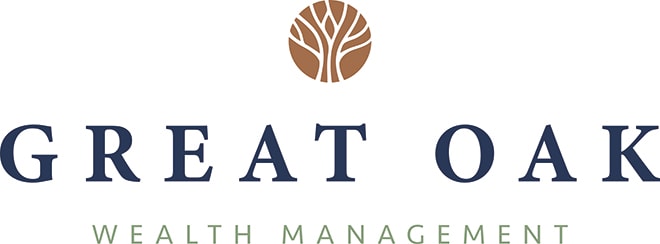Do I stay or do I go? Employees today are facing more choices and transparency in the job market thanks to ever-increasing employment mobile apps and websites. They also are facing the option to go out on their own in the gig economy. That being said, today’s employment environment looks and feels quite different than just a few decades ago. Given all the options for people today, just about everyone will be making at least a few career transitions in their lifetime.
However, there are ways to maximize that transition. I, myself have gone through changes throughout my career, from corporate position to corporate position, and more recently to Great Oak Wealth Management, an example of a transition from corporate America to a local business. In each of these phases of my career, I have realized a few best practices that can be applied when changing jobs, no matter your age bracket.
Reflect.
This is likely an emotion-heavy time. Job changes are not always something that you have planned to happen. Your transition may be to bigger and better things, or it may be the result of a forced decision such as downsizing. Choosing to make career transitions is a significant life event, and it can be stressful and cause anxiety, excitement, or even fear.
Listen to your emotions
Use this time to listen to yourself and review your goals and priorities. What was a ‘must have, now’ in your life may become a ‘would be nice to have, in the future’ and all combinations of the above. Taking the time to self reflect and reflect as a couple or family is an essential aspect of this transition.
Are we lost yet?
If we are driving to the wrong destination, it might be too late to course correct once we get there. Let’s take the time now to make sure we have the correct destination in mind.
Review your benefits.
Is the grass really greener?
Benefits and the quality of benefits vary widely from company to company and can be a dealbreaker when reviewing employment opportunities. During your employment offer negotiations, take the time to consider both the monetary benefits and the quality of life benefits. In other words, quality of life benefits could include child care, ability to work remotely, culture, and the values of the company.
Details, details, details
When you leave a job, one of the pieces of information you will receive from your former employer is your COBRA benefits. Especially if there is a break between your previous employment and your new employment, COBRA is something you should be familiar with to continue your benefits during the transition. COBRA is a failsafe, (albeit an expensive failsafe), and was designed to help employees in transition by providing temporary health insurance benefits. How do you know if you can continue your benefits using COBRA? There are three criteria.
- The first is referred to as ‘plan coverage,’ simply meaning your company has to be eligible.
- The second criteria is, ‘qualified beneficiary,’ meaning you must have been enrolled with your benefits the day before the qualifying event.
- The last criteria is the ‘qualifying event,’ this can vary from now being eligible for Medicare, to losing your job, to moving from full time to part-time.
Costs
The actual benefits you will receive will not change if you choose to enroll in COBRA, but the costs will be higher. If we aren’t using our benefits regularly, it can be easy to forget about what your employer is truly covering. Employers tend to cover a majority of the healthcare benefits costs that we do not see on a day to day basis such as subsidizing the premium cost.
I have seen the impact of this first hand, transitioning from one corporate job to another, while the benefits were not significantly different, one company subsidized premium costs much more than the other, resulting in a noticeable difference in the take-home pay. The COBRA costs include your entire premiums, out of pocket expenses, and typically a two percent administration fee on top. If this is a necessary route, you will have to move fast because although the coverage will begin once you leave your job due to a ‘qualifying event’ the first payment for the COBRA coverage must be paid by the 45th day you leave your position.
Not all benefits are purely monetary, are you able to work remotely in case of emergency, what educational benefits are available, how will your work-life balance be affected? How does your benefits package compare to your spouse’s both in terms of cost and coverage options?
Review your retirement savings.
There is no penalty to leave your 401(k) with your former employer plan. Some employers will require that you move your 401(k) assets after a specific period post your transition. Moreover, there are potentially some benefits to move it.
The options matter
Always review the potential investment offering in your plan, employer match and costs of your new retirement plan; this is often a discussion we will have with our clients.
Collecting accounts
Leaving your existing 401(k) with your former employer plan may be the ‘easiest’ option for the short-term but be careful not to begin ‘collecting accounts.’ Increasing the number of accounts you own can increase complexity, result in overlap, and can even be forgotten about entirely. Likely on the first day of your new job, you will likely be completing ‘benefits enrollment,’ be sure to enroll your new retirement plan.
Most people contribute at least as much as their employer will match. Some employers will have a tiered approach, matching 100% up to a certain amount and then a reduced amount for a certain amount above that level. We can review your situation, goals, and income to help determine the appropriate amount for your contribution.
Just like a new year, a new job means a fresh start. Maximize the energy and enthusiasm that comes with the ‘newness’ and start checking off your financial to-do list. If you are a part of the gig economy, use this momentum to strengthen your fiscal discipline that we discussed in our blog Working in the Gig Economy Requires Discipline. Revisit your cash flow, are there new opportunities to save and invest? How are you positioned in terms of debt management? Does your family have proper insurance coverage in case of a catastrophe?
Next Steps
This is a great time to start the habit of reviewing your financial position regularly. We can help streamline this process by overseeing your progress towards your goals, course correct when needed, and help keep you moving towards making your dreams become your reality.
If you or a loved one are approaching career transitions and would like to schedule a time to discuss the next steps for you, please use our Contact page to schedule an appointment.








